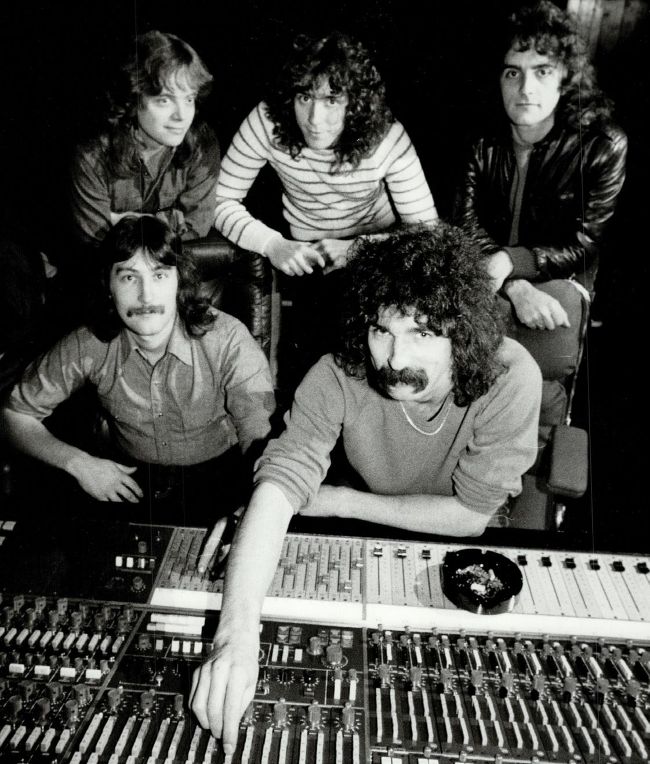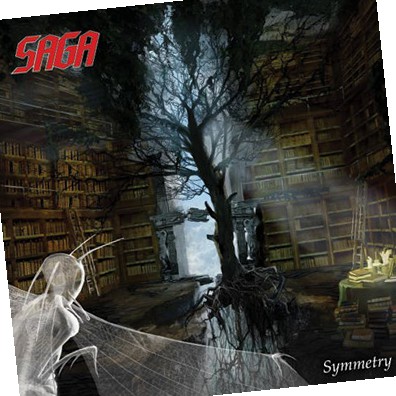THE PROG INTERVIEW MICHAEL SADLER
Every month, we get inside the mind of one of the biggest names in music. This issue it’s Saga’s Michael Sadler. The Welsh-born singer and songwriter has played a key role in the Canadian band since their formation in 1977 and he’s appeared on all their studio albums bar one. Although the band were due to retire after their 40th anniversary in 2017, they recently released a new acoustic album, Symmetry – their first studio recording in seven years. Here the vocalist looks back over the years and tells Prog why he’s not ready to hang up his microphone yet.
Words: Dave Ling
“Saga’s biggest problem is that we occupy a grey area,” admits Michael Sadler. “We’re not quite prog enough for the purists, and not heavy enough for the hard rock crowd. We’re too tough to pigeonhole.”
Although his observation holds water, it didn’t prevent Saga from becoming cult heroes and selling millions of records around the world.

Turning the prog up to 11: in the studio in Canada, 1981.
COLIN MCCONNELL/TORONTO STAR VIA GETTY IMAGES

New album, Symmetry.
PRESS/ALEXANDER MERTSCH
First known as Pockets, Saga were formed in Oakville, Ontario, by vocalist/keyboardist Sadler along with the Crichton brothers Ian (guitar) and Jim (bass, keyboards), keyboardist Peter Rochon (later replaced by multiinstrumentalist Jim Gilmour) and drummer Steve Negus.
Readers may well be thinking: “That’s a lot of keyboardists”, and they’d be right. The band’s hook-friendly sound was literally drenched in keys, carefully balanced by the stuttering, staccato yet deeply melodic soloing of Ian Crichton. With certain songs written in the form of chapters, though not revealed chronologically, Saga’s command of words was complemented by a fondness of obtuse arrangements. Advanced different,” Jim Crichton joked to levels of musicianship allowed them to swap instruments onstage. “The lights would dim and when they came back up again everyone was playing something Prog several years ago. “It was the most amazing yet inexpensive special effect.”
Saga forged a strong identity with their first six albums, two of which were made with Rush producer Rupert Hine, before the late-80s departures of Jim Gilmour and Steve Negus caused their own …And Then There Were Three…-style crisis as the two of them formed GNP (the Gilmour-Negus Project).
With same pair back onboard in the 90s, the music gradually regained its progressive edge. Citing family reasons, in 2007 Sadler quit Saga for what turned out to be four years, with Canadian Rob Moratti taking his place for The Human Condition in 2009. Three years after Sagacity, the band’s 21st studio set, it was announced that Saga would retire following a 40th anniversary tour dubbed The Final Chapter, although they have since backtracked to continue with live performances.